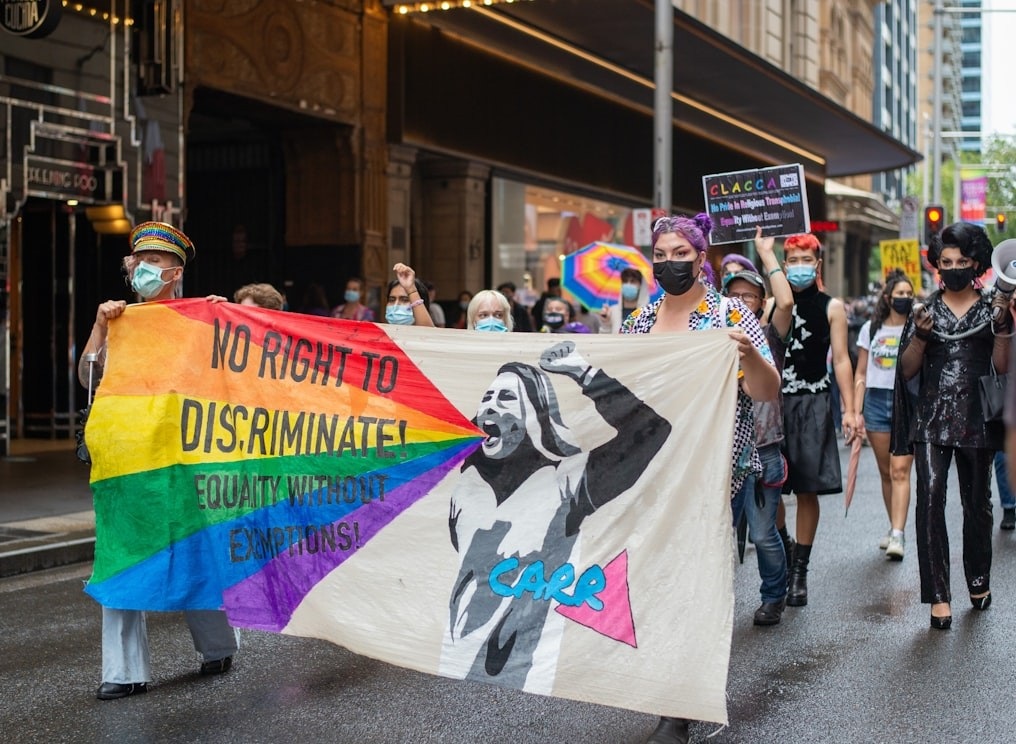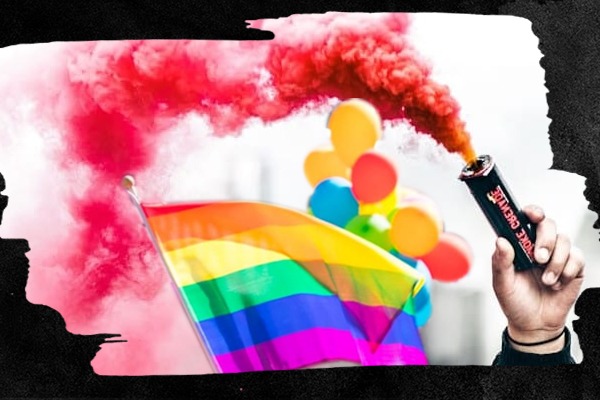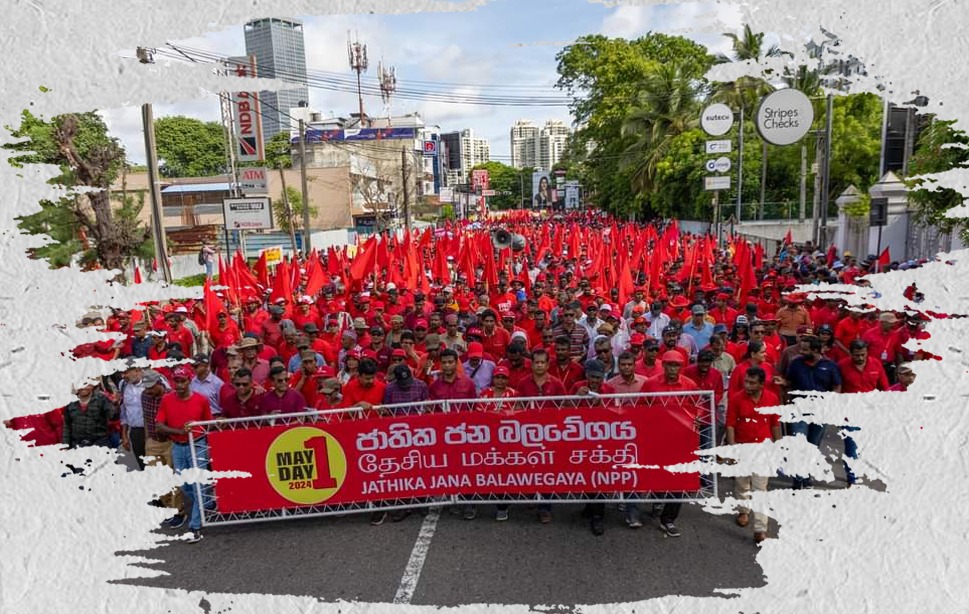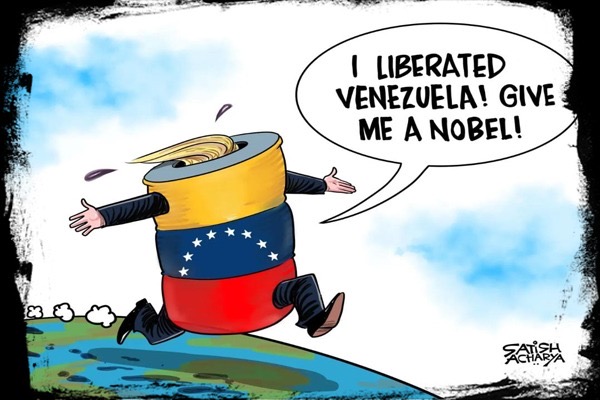Throughout human history, ruling classes have consistently argued that their societal structure is the most “natural” state of affairs, disregarding the true course of history and justifying existing forms of oppression. This perspective often presents oppression as unavoidable or even morally acceptable. The oppression experienced by LGBTQ individuals under capitalism is no exception, as it can be linked back to the origins of class-based societies.
In his groundbreaking work, The Origins of the Family, Private Property and the State, Frederick Engels utilized anthropological evidence to demonstrate that communal living without social hierarchies was the standard for the majority of human history. This viewpoint has been expanded upon by contemporary anthropologists such as Marxist feminist Evelyn Reed. For millennia, humans collaborated to survive and prosper without establishing classes based on wealth or power.
Engels proposed that societal inequality arose with the advancement of tools and production methods that allowed for the generation of a surplus beyond basic necessities. This surplus enabled a portion of society, predominantly men, to amass wealth as private property. Prior to the concept of private property, there were no special privileges or power linked to gender roles in tasks like hunting and animal husbandry.
In earlier societies, women held a central role in coordinating food, shelter, and child-rearing, with communities organized along matrilineal lines. Lineage was traced through the mother’s line, and children were nurtured by the broader community, not solely biological parents.
The shift from mother-right to patriarchal structures brought about a significant change in society, ushering in a class-based system characterized by inequality. As the possessing class rose to power, women were relegated to the status of mere property owned by men, essentially becoming victims of domestic servitude. The regulation of female sexuality and the evolution of marriage customs were designed to secure the legitimacy of inheritance through the male lineage. With the ascendancy of patriarchal beliefs over matrilineal religions, the subjugation of women, homosexuals, and gender non-conforming individuals intensified during the feudal era. Strict dress codes and the persecution of those who deviated from traditional gender norms were widespread, compelling many to conceal their true selves to evade mistreatment.
Struggles within Modern Era
In the late 1800s, a significant movement advocating for gay rights began to take shape within the capitalist system. Influenced by early feminist and anti-capitalist theories, these movements aimed to challenge the restrictive family and gender norms of the Victorian era. One notable figure in this movement was Magnus Hirschfield, a writer and doctor in Germany, who played a crucial role in forming groups that defended homosexuality around the turn of the twentieth century.
A significant turning point came with the 1917 Russian Revolution, which not only decriminalized homosexuality but also introduced progressive measures such as granting divorce upon request, extending equal rights for women, and legalizing abortion. Unfortunately, in 1933, the Soviet government reversed these advancements by reintroducing laws against homosexuality, falsely associating it with decadence from the previous ruling class.
The 1950s in the United States marked a period of intense repression, with aggressive anti-communist witch-hunts and relentless campaigns against the LGBTQ+ community. This era emphasized conformity, promoting and enforcing rigid standards of behavior and relationships. However, it was during this time that the first long-lasting gay rights organizations in the U.S. began to emerge.
In the 1960s, a global surge of resistance against the status quo started to gain momentum. Revolutionary movements challenging colonialism and imperialism began to rise, with marginalized communities, especially the youth, leading the charge against oppression. Many of these movements were drawn to socialist ideologies. During this era of revolutionary fervor, the LGBTQ+ community also began to stand up against centuries of persecution and discrimination.
The political movements of the time intertwined with a rebellious youth culture that rejected traditional gender norms. The establishment reacted harshly to even the slightest deviations from the norm, such as men sporting sandals, beads, or pink attire, or sporting long hair. Similarly, women who opted for trousers, suits, or ties faced backlash. The rigid societal norms were enforced by the authorities and the machinery of repression and propaganda of the bourgeoisie. Unfortunately, it is a sad reality that during the peak of anti-communist and anti-gay propaganda, most left-wing groups and civil rights organizations, with a few exceptions, did not challenge the homophobic rhetoric. However, this began to change after the Stonewall Rebellion of 1969, which marked the dawn of the modern LGBTQ+ movement.

The Stonewall Uprising
The Stonewall Rebellion of 1969 in New York City was a momentous occasion that forever changed the fight for equality. It was a time when individuals who had long endured oppression and marginalization finally united to resist homophobia, discrimination, and police brutality. This uprising marked a turning point as people emerged from the shadows of isolation to demand their rights in a powerful mass movement on the streets. It is crucial to acknowledge the significant role that transgender individuals played during this pivotal period in history.
While the Stonewall Rebellion is widely known, there is another event that deserves equal recognition – the Compton’s Cafeteria Riot in San Francisco in 1965. This lesser-known but equally important event was a militant action led by transgender individuals from the Tenderloin district. It preceded the Stonewall Rebellion and set the stage for future activism. Following the riot, members of the established lesbian and gay movement in San Francisco showed solidarity by joining in demonstrations the next day.
During the time of the Stonewall Rebellion, several organizations advocating for transgender liberation were established. One of the most prominent groups was the Street Transvestite Action Revolutionaries (STAR), co-founded by transgender activists Marsha P. Johnson and Sylvia Rivera. These trailblazers are now celebrated as key figures in the early LGBTQ rights movement. Rivera explained that STAR was created to support marginalized individuals, including street gay and homeless populations. As the organization evolved, the “T” in STAR was changed to represent Transgender, reflecting the shifting language and political dynamics of the time. STAR fought tirelessly against racism, sexism, homophobia, and transphobia, paving the way for greater inclusivity and acceptance within the LGBTQ community.
The ongoing heroic struggle against anti-LGBTQ bigotry and other injustices perpetuated by capitalism remains a pressing issue. As wealthy capitalist elites target the livelihoods of workers, unity and unwavering resistance are crucial moving forward. The mass incarceration of individuals from marginalised grups, police violence against youth, hate crimes targeting LGBTQ individuals, and assaults on immigrants are unfortunately common occurrences within our society. Additionally, there is a well-funded effort to roll back the progress made by the women’s movement.
Rainbow Capitalism; a threat to the queer liberation
The Pride Movement, born out of the revolutionary spirit of the Stonewall uprising, has faced a troubling challenge in recent years. Rainbow Capitalism, the co-opting of this movement by capitalist forces, has led to the commercialization of Pride events and the incorporation of queer identities into capitalist structures. This global phenomenon has transformed what was once a platform for marginalized voices into an opportunity for corporations to profit and promote their products.
Pride events, which were originally meant to amplify the voices of the LGBTQ+ community and celebrate their identities, have now become a stage for rainbow flags and LGBTQ+ symbols to be plastered on merchandise. This commodification not only dilutes the true essence of the queer struggle but also perpetuates a shallow understanding of LGBTQ+ issues.
By aligning themselves with capitalist structures, the Pride Movement risks losing its radical roots. The fight for LGBTQ+ rights was never intended to be about assimilation into existing systems of power; it was about challenging and dismantling those systems. However, Rainbow Capitalism seeks to assimilate queer identities into the capitalist framework, effectively neutralizing the potential for genuine liberation.
Furthermore, the appropriation of the Pride Movement by Rainbow Capitalism perpetuates a harmful narrative that equates visibility and consumerism with progress. While it is important to celebrate and acknowledge the achievements of the LGBTQ+ community, true progress cannot be measured solely by the number of rainbow-themed products on store shelves. The struggle for equality goes far beyond surface-level representation; it requires dismantling systemic oppression and addressing the intersecting forms of discrimination faced by queer individuals.
In order to reclaim the true essence of the queer struggle, it is crucial to resist the co-optation of the Pride Movement by Rainbow Capitalism. This can be achieved by centering the voices and experiences of marginalized queer individuals, prioritizing grassroots activism, and challenging the capitalist structures that seek to commodify and dilute the pursuit of genuine liberation. Only by staying true to the revolutionary spirit of the Stonewall uprising can the Pride Movement continue to be a powerful force for change and progress.
In this context, the present day fight for socialism involves creating a powerful movement for democratic rights that brings together working-class individuals and marginalized communities. This is why a Marxist examination of the LGBTQ community’s history of oppression and the evolution of the LGBTQ rights movement is a crucial component of the strategic framework for revolutionary change.








